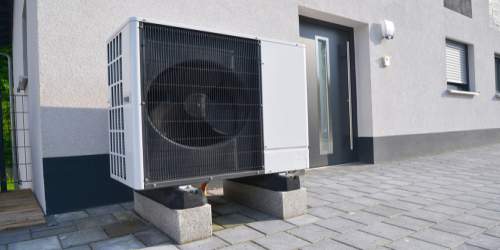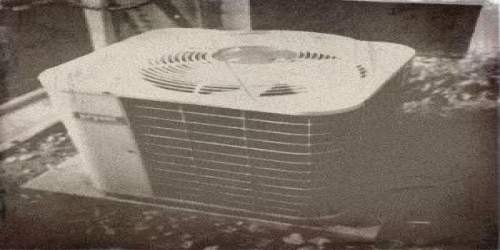Read Time : 3 Minutes
Heat Pumps Pros and Cons - A Complete Guide
If you have found yourself interested in investing in a heat pump for your home or business, then you will want to know about the various pros and cons that are associated with them. Here, we take a look at them in detail – providing you with a clear view of each side to help you make your choice. A heat pump can be a fantastic and wise investment. However, it is first important to make sure that it is going to work for you and fit in with your home.
What Are Heat Pumps?
Heat pumps are systems that move (or pump) heat from one place to another by using a compressor and circulating a structure of liquid or gas refrigerant. Through this, the heat is extracted from outside sources and then pumped indoors. Pumping the heat tends to use a lot less electrical energy than the typical methods of turning electricity into heat. Plus, during the summer months, depending on the model, the cycle can be reversed, and the unit will act as an air conditioner instead, making it multi-functional. The popularity and use of this particular energy source have been a lot slower in the UK than the rest of Europe. This is due to the fact that the government only recently introduced and implemented new schemed to make switching to green energy both easier and a lot more affordable. These moves have helped to increase the popularity of all renewable energy technology among the British public, and so it is starting to take off. Heat pumps are actually the most efficient alternative to fuel, oil, and electrical systems, when it comes to the process of heating and cooling. They supply a larger capacity of heating and cooling than the amount of electrical energy that is used to run it. In fact, the efficiency rate is able to go up as high as 300%.
COMPARE PRICES FROM LOCAL INSTALLERS
Compare prices from local companies fast & free
Enter your postcode to compare quotes from leading professionals. We promise to keep your information Safe & Secure. Privacy Policy
How Much Does a Heat Pump Cost?
Heat pumps are pretty pricey to install, although costs will vary for every model of heat pump. The usual price range for a complete installation of an air source heat pump is between £8,000 and £14,000 and for a ground source heat pump between £18,000 and £30,000, taking into account that running costs will differ depending on your household, its insulation and size. Read more about air to water heat pump cost. Heat pumps can actually be pretty expensive to install. However, the cost will tend to vary for every model of heat pump. The usual price range for a complete and all-inclusive installation of an air source heat pump is between £8,000 and £14,000. This takes into account the fact that running costs will differ depending on the house, installation, and the size. Generally, the running costs for this will be lower than other systems, with the main differences being seen once you switch from your current method of heating. An example would be that if you were to switch from gas heating, it would give you the lowest savings figures. On the other hand, shifting from electricity could save you over £500 per year. The most important thing to remember when it comes to installing a heat pump is to ensure that it is done correctly. The installer should also stay to explain how it works to you, as well as the ideal settings for your home and location. Always make sure you go with a reputable installer.
The Advantages of Heat Pumps
- Heat pumps are much safer than systems that are based on combustion.
- They are cheaper to run than oil and gas boilers.
- The system reduces your carbon emissions, and it has an efficient conversion rate of energy to heat.
- Less maintenance than combustion heating systems.
- Can provide cooling during the summer, effectively making it an air conditioner.
- They can have a very long lifespan of between 20 to 25 years. As a result, they are extremely reliable and a steady source of heat.
- You may be eligible for payment under the Renewable Heat Incentive (RHI) scheme (the RHI scheme closed to new applicants at the end of March 2022 and has been replaced with the Boiler Upgrade Scheme (BUS)).
The Disadvantages of Heat Pumps
- Heat pump systems have a high start-up cost.
- They are fairly difficult to install, especially as research must be undertaken in order to understand the movement of heat, local geology, as well as the heating and cooling requirements for your household.
- Some of the fluids used for heat transfer are of questionable sustainability, and they raise environmental concerns. Hence it is recommended to use biodegradable fluids.
- The installation process will mean significant work and disruption to your house and garden. Work will have to be done on the actual building, including penetration of the walls.
- Some heat pumps experience trouble in cold areas which can damage the system. Therefore, full efficiency during the cold seasons cannot be reached. However, there are possibilities of an upgraded heat pump system that could overcome this problem.
- Electricity is required to run the heat pumps, which means that they will never be entirely carbon neutral.
- Special planning permissions are required in Wales and Northern Ireland, whilst in England and Scotland, it depends on your location and size of your property.
Want to Know More?
Have you found yourself interested in heat pumps? If you want to know more then make sure you head to our Renewable Shop where you can find our full range of products, each with the relevant information. Or simply give us a ring using the number at the top of this page and have a chat.
Find a local installer
Welcome to the biggest directory of UK renewable energy companies





 How does a Heat Pump Work
How does a Heat Pump Work








